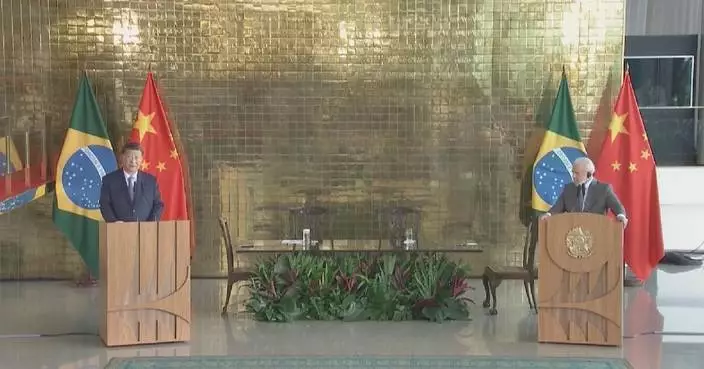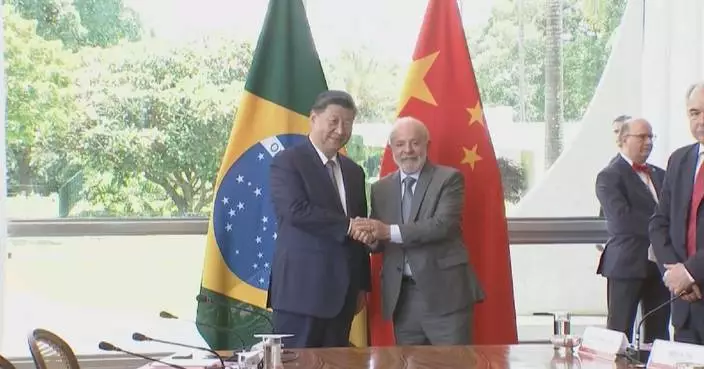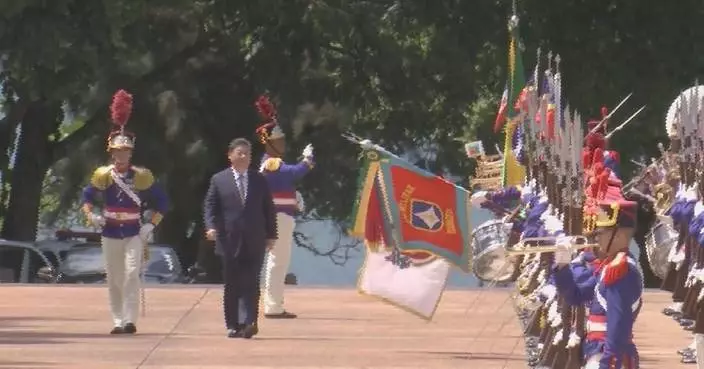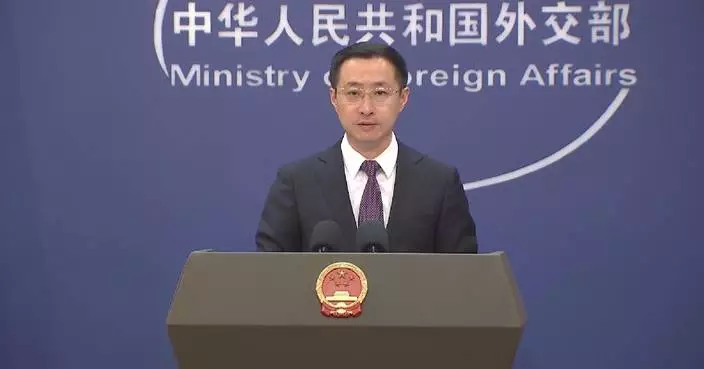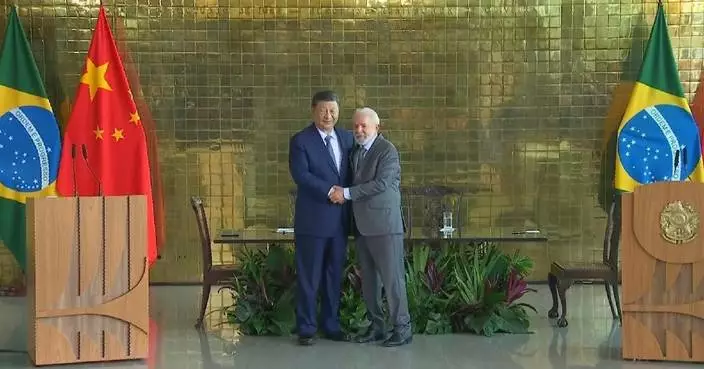Egypt is making a push towards localizing the assembly and production of electric vehicles (EVs) to boost its auto sector while pursuing sustainable development.
Egyptian Prime Minister Mostafa Madbouly on Sunday reopened the state-owned Nasr Auto Company following a 15-year hiatus. Now the company has a capacity to produce more than 40,000 electric vehicles a year as well as EV batteries.
"Egypt, according to the prime minister, now has the capacity to produce half a million electric cars annually and the contracts signed with foreign firms so far will produce about 100,000 cars a year," said Mahmoud Khairy, a car trader and expert from Egypt.
Having free access to European and African markets, the most populous Arab nation can also leverage its strategic geographic location and huge market potential to become a regional hub for exporting self-manufactured vehicles.
"The country will benefit from local production by being partially self-sufficient in vehicles. This means less expenditure on hefty import bills," said Mahmoud Khairy.
The Egyptian government offers various incentives including tariff and tax breaks to encourage foreign companies to set up production locally, which in turn brings in advanced insights and expertise for EV manufacturing.
Egypt has witnessed booming sales of EVs. Electric cars increased from the beginning of July 2021 until the end of June 2024, raising the total number of licensed electric vehicles to 7,213, with BYD as the second best-selling car brand, according to the data.
Several European and Asian brands have already signed up to establish assembly plants in Egypt, including those from China.
Waleed Suleiman, the CEO of Spark EV Company in Egypt, is discussing with his Chinese counterparts plans to establish an assembly plant for Chinese EVs in Egypt.
"The Chinese cars are very advanced, high quality, very reasonable price. When you compare it with European cars and American cars, it's far away. If not a better quality, it's the same quality, but when it comes to price, it's much much lower than the other ones, and that's why people tend to go and buy Chinese cars," he said.
Experts from auto industry have also emphasized the need for EV infrastructure to keep up with the expansion plans.
"The number of recharging points increase gradually, covering main roads and highways and we are building new ones daily.There are 8 companies licensed to establish charging points," said Ahmed Zain, owner of Alienz Auto.

Egypt localizes EV assembly, production to lift its auto sector, reach sustainable goals
Students and teachers at the University of Sao Paulo in Brazil have expressed their wish for strengthened cultural exchanges and enduring friendship between the two countries and their peoples as Chinese President Xi Jinping visits the country.
Xi arrived in Rio de Janeiro, Brazil on Sunday where he also attended the 19th G20 Summit, and started a state visit to Brazil on Wednesday as the two countries mark the 50th anniversary of the establishment of diplomatic relations.
In anticipation to Xi's visit, 21 students and teachers from the university, who participated in the "Looking China "international youth film project, wrote a letter to him, expressing their delight over his visit.
Recently, Xi replied to letters from more than 100 friendly individuals from all walks of life in Brazil, including teachers and students from the university, encouraging them to continuously contribute to China-Brazil friendship.
The students and teachers, who were thrilled to receive the reply from Xi, shared their personal experiences in exploring China's natural landscapes, cultural richness and recording the stories about China.
"I have traveled to China three times to film documentaries and share stories about China. My first time was eight years ago, and my professor, Cecilia, spoke to us that maybe there is this opportunity to go to China and make a film. And luckily, I was chosen to go. It was a very special experience to go to Xinjiang. It's a place with a lot of diversity. People from different ethnic groups, they are living in the same place. During that experience, I found that although we come from different places and live far apart, we can connect and get close in some way. So my film is about connection, affection, and how we can connect," Pedro Nishi, a student from the School of Communications and Arts of the University of Sao Paulo.
He has created documentaries on Chinese culture through his unique perspectives during three China tours in the past eight years.
During his first trip to Xinjiang Uygur Autonomous Region in northwest China in 2016, Nishi met a local little girl named Mudan, who became the protagonist of his story.
Eight years later, when Nishi returned Xinjiang to document the girl's growth, he was surprised about how the region had urbanized and modernized in just a few years. But the kindness of the locals and the deep friendships between them and the Brazilian filmmakers remained unchanged.
Nishi mentioned a pair of cotton slippers with local ethnic minority characteristics that he wore during the shooting in Mudan's home, which the girl's maternal grandmother later gave as a special gift to the Brazilian friend. He has kept this gift as a symbol of the deep friendship.
"And I put this flip flop in my home, nowadays in a very special place. And every time that I looked to this gift, I feel my heart a little bit warm. I made a lot of friends, I made three films in China. And we can share memories and share feelings and be close. So I believe that this relation is very powerful," he said.
Since 2016, some 27 Brazilian participants in the "Looking China" program has created a total of 36 short films during their trips across 11 Chinese provincial-level regions.
With a lot of incredibly impressive stories recorded and strong emotional ties established, the Brazilian filmmakers decided to share their unforgettable experience in China with President Xi.
"I think this is an experience that is life-changing for everybody. Because they go to a different country they've never been to, they make friends, they make connections and they come out with a film. We decided to write this letter to President Xi to highlight the impact it has had on the lives of the students here," said Professor Cecilia Mello, who has led Brazilian student delegations to China since the project began.
In November, Xi replied to the letters from friendly personages from all walks of life in Brazil, encouraging them to continuously contribute to the China-Brazil friendship.
Xi replied that he is glad to see that the China-Brazil friendship has been passed on from generation to generation. Over the past 50 years since the establishment of diplomatic relations, China and Brazil have marched forward hand in hand and shared weal and woe, becoming good friends spanning mountains and oceans.
He said Brazilian friends are welcome to visit China more often to experience the myriad sights of Chinese modernization, and expressed the hope that people from all walks of life in the two countries will play a positive role in promoting the continuous development of China-Brazil relations and making the China-Brazil friendship flow unceasingly like the Yangtze River and the Amazon River.
"We were very surprised and very honored that President Xi knew a little bit of our experience. It is a beautiful experience," said Nishi.
"I was specially touched by what President Xi said about the friendship between Brazil and China, that we became friends through mountains and seas. We are in opposite sides of the globe, but we became friends despite the distance, and I think that's the sign of an everlasting friendship," Mello said.
Twenty students at the University of Sao Paulo have been involved in the "Looking China" project for eight years, gaining a profound cultural experience, witnessing China's development, as well as making lifelong friends. They have also been active in sharing and spreading the touching stories they documented in China.
"When I came back to Brazil from China, when I talked to my family and my friends, I used to say that China is a very special place. When I show my films to other people here in Brazil, everybody feels a little bit touched with this connection between human beings. A lot of Brazilians that I know that went to China with the 'Looking China' program, all of them made good Chinese friends," said Nishi.
"China always fascinated me. I learned a lot of things in China. I could show people real China," said Sasha, a student at the School of Communications and Arts of University of Sao Paulo.
These participants also encouraged young students to join in the cultural exchange program and help deepen the friendship between young people of the two countries.
"China is a beautiful country with a lot of beautiful people. I hope that more people just like me can go to China," said Haisa, another student filmmaker.
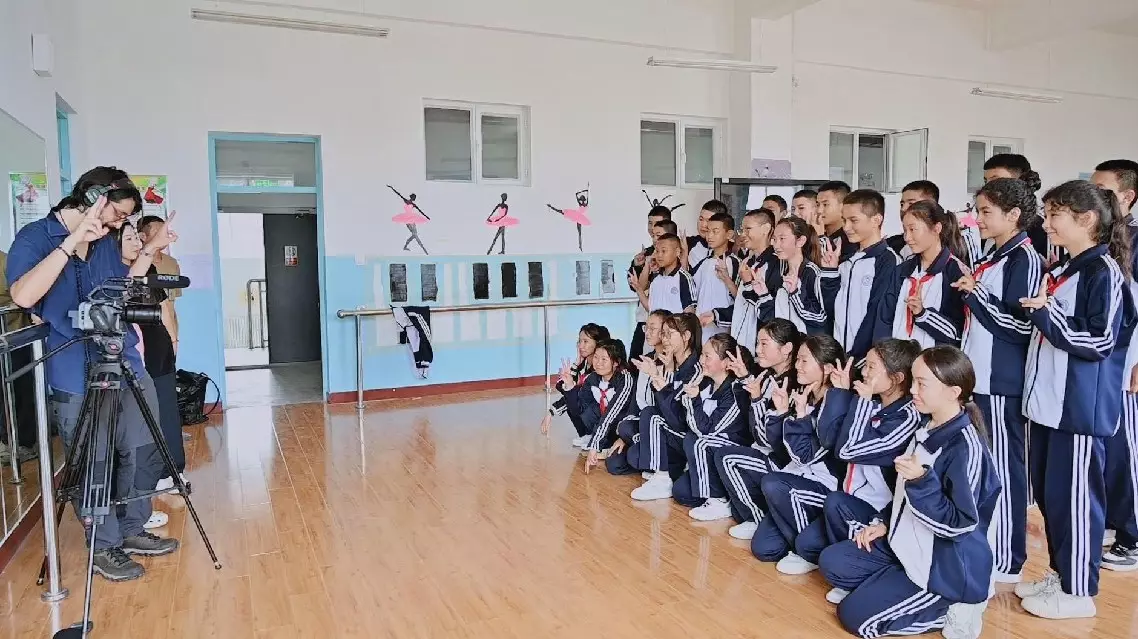
Brazilian students showcase China through documentaries






